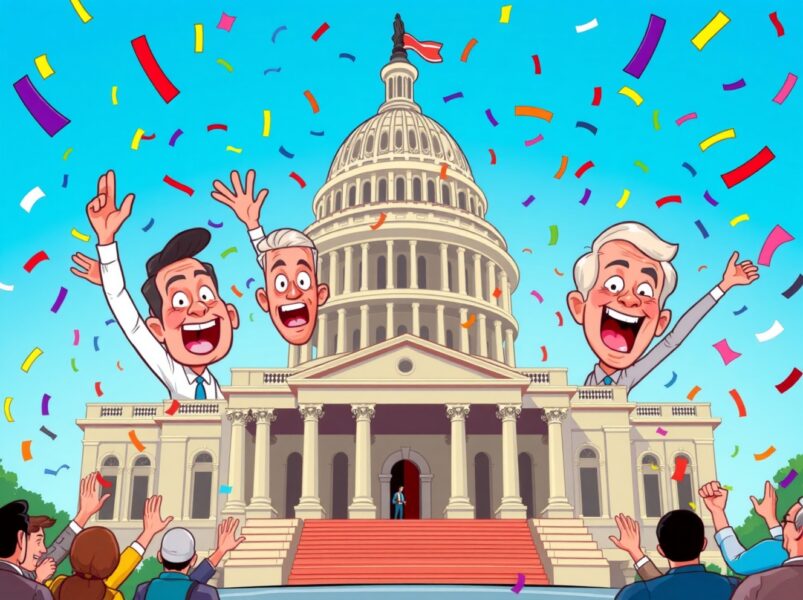E.l.f. Beauty (ELF) Stock Crashes 29% as Tariffs Devastate Profit Margins
TLDR
- E.l.f. Beauty stock plummeted 29% after the company issued fiscal year revenue guidance of $1.55-$1.57 billion, missing analyst expectations of $1.65 billion.
- Tariff costs are expected to exceed $50 million annually, with China representing 75% of production, causing gross margins to drop 165 basis points to 69%.
- The Rhode acquisition is projected to add $200 million in sales this fiscal year, accounting for roughly 13% of total revenue.
- Second quarter revenue reached $344 million versus expectations of $366 million, while adjusted earnings of 68 cents beat the 57-cent estimate.
- Net income crashed 84% to $3 million as tariff costs hit before August price increases took effect.
E.l.f. Beauty stock suffered a sharp decline Wednesday, falling 29% after the cosmetics maker issued fiscal year guidance that disappointed Wall Street. The company projected revenue between $1.55 billion and $1.57 billion.
e.l.f. Beauty, Inc., ELF
Analysts were expecting $1.65 billion. The guidance also included adjusted earnings per share of $2.80 to $2.85, well below the $3.58 consensus.
This represents the first full-year forecast since the company pulled guidance in May. CEO Tarang Amin attributed part of the miss to the absence of prior guidance affecting analyst estimates.
The fiscal second quarter showed mixed results. Revenue came in at $344 million, up 14% from $301 million last year but below the $366 million estimate.
Adjusted earnings provided a bright spot at 68 cents per share, beating expectations of 57 cents.
Tariff Pressure Weighs on Margins
E.l.f. Beauty faces over $50 million in annual tariff costs for fiscal 2026. The company sources approximately 75% of its production from China.
The tariff impact was visible in the quarter’s results. Gross margins fell 165 basis points to 69%.
Net income dropped 84% year-over-year to just $3 million. Last year’s second quarter saw net income of $19 million.
Amin explained the second quarter bore the heaviest tariff burden. The company implemented $1 price increases in August, but those weren’t reflected in the quarter’s financial results.
The company doesn’t plan additional price increases. Management is working on supply chain optimization and production diversification to mitigate tariff exposure.
Rhode Becomes Key to Growth Strategy
The Rhode acquisition has become central to E.l.f.’s growth plans. The $1 billion purchase of Hailey Bieber’s cosmetics brand is expected to generate $200 million in sales this fiscal year.
On an annual run rate, Rhode should contribute $300 million. This makes up about 13% of E.l.f.’s revenue forecast.
Rhode launched at Sephora in September with record-breaking results. Amin called it Sephora’s largest brand launch in North American history, exceeding the second-biggest launch by 2.5 times.
The brand currently grows at approximately 40% year-over-year. E.l.f. sees expansion opportunities in the UK and international markets.
The company’s namesake brand faces tougher comparisons. Last year featured viral lip oil launches that drove strong performance. This year’s innovation pipeline is solid but doesn’t match the previous year’s momentum.
E.l.f. Beauty stock reflected investor concerns about tariff costs and the company’s heavy reliance on Rhode to maintain growth rates. The second quarter revenue miss of $344 million against $366 million expectations, combined with net income falling to $3 million, underscored the financial pressure from tariffs even as adjusted earnings beat forecasts at 68 cents per share.
The post E.l.f. Beauty (ELF) Stock Crashes 29% as Tariffs Devastate Profit Margins appeared first on Blockonomi.
You May Also Like

Aster has announced the launch of its fourth phase of airdrops, allocating 1.5% of the total supply.

Analysis: RSI is trending towards a rebound, while ETF fund flows are cautious; the sustainability of Bitcoin's rebound remains to be seen.
